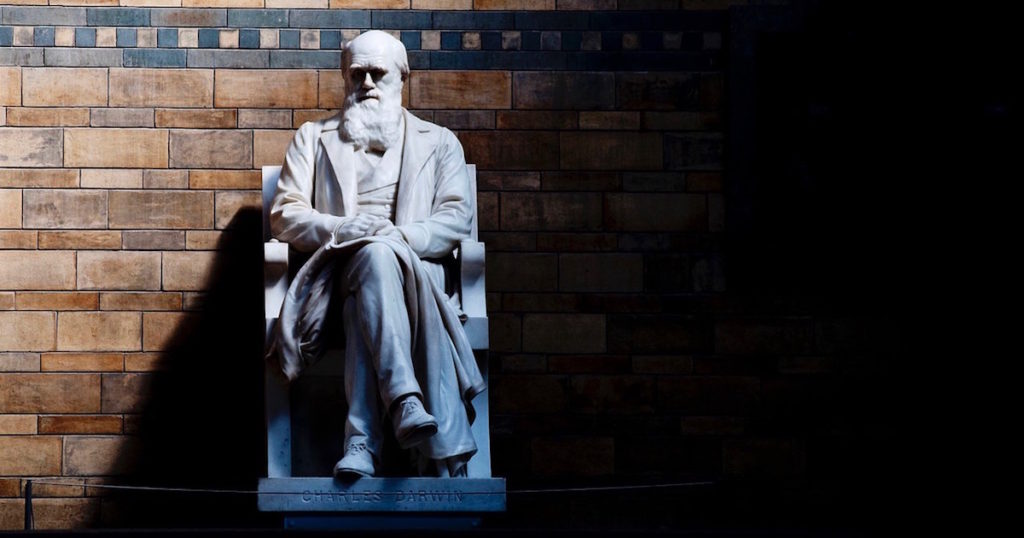 Evolution
Evolution
 Intelligent Design
Intelligent Design
Intelligent Design and Natural Theology

Editor’s note: We are delighted to host a new series by Neil Thomas, Reader Emeritus at the University of Durham, “How I Came to Take Leave of Darwin,” of which this article is the six installment. Find the full series here. Professor Thomas’s recent book, Taking Leave of Darwin: A Longtime Agnostic Discovers the Case for Design, is available now from Discovery Institute Press.
Whereas pre-Darwinian generations believed unselfconsciously that Nature’s laws were God-given, post-Darwinian scientists have the greatest difficulty with such discourse because with Darwin came a new era of enquiry where naturalistic explanation alone was valued and metaphysical speculation shunned. For that reason the majority of science professionals reject any kind of “God-talk” — the more so if it is suspected of being camouflaged for tactical reasons — hence the frequent imputation of “neo-creationist” tendencies to members of the intelligent design community. But how justified is the imputation?
Conversion by Science
Generalization is clearly not possible in the absence of a party line (what is referred to for convenience as the ID community comprises a disparate array of scientists and scholars of different nationalities united only by their doubts about Darwin). In the publications I chose to consult, authors invariably claim that their conclusions represent a scientific rather than a religious inference; their personal beliefs (some but by no means all have religious affiliations) are simply not to the point. Paul Davies for instance explains in his book The Mind of God: Science and the Search for Ultimate Meaning (1992) that he is not religious but that he cannot conceive of the Earth as a “purposeless accident” since “through my scientific work I have come to believe more and more strongly that the physical universe is put together with an ingenuity so astonishing that I cannot accept it merely as a brute fact.” The late humanist philosopher and doyen of the British Rationalist Association, Professor Anthony Flew, in his book There IS a God (2007), described his move from a rationalist to a theistic (or at least deistic) stance as having been determined by new scientific evidence not available in his youth. This evidence stems largely from the sheer intricacy of natural structures, especially at the micro-level, which can only now be fully appreciated by analogy with the miniaturizations enabled by advanced nanotechnology. Flew was more than willing to concede that his present position may have religious implications, but quite reasonably pointed out that it did not depend on religious presuppositions. He describes his striking change of heart as “a pilgrimage of reason,” and, notwithstanding the apparent historical incongruity of persons finding their way to God by reason rather than by faith, his move might justly be characterized as an instance of that new phenomenon of “scientific conversion.”
Because the ID dissenters from the Darwinian line come from within the same academic ranks as the Darwinian orthodox, their bona fides should not in my opinion be lightly doubted. It would certainly be anachronistic to frame this modern debate as “Enlightened Science versus Unexamined Creationism Part 2” (the binary best known from the infamous Scopes “monkey trial” of 1925 in Tennessee). Imputations of bad faith (which include mocking put-downs of honest doubts about Darwinism as being just so many variations of “The Argument from Incredulity”) are valueless — except in the tactical sense of deflecting attention from the gravamen of the ID scientists’ charges. Notably, the arguments of the latter contain no anti-materialistic invective or coded jeremiads about godlessness: their focus is squarely on the substantive issue of the theoretical and empirical inadequacies of the Darwinian paradigm. Referencing Thomas Kuhn’s work on paradigm shifts, they see Darwinian theory persisting for lack of a better alternative rather than on the basis of its explanatory merits.
Britain Compared with the U.S.
Why, given that the ID scientists’ critiques of Darwinism are frequently of such a root-and-branch nature, have they struck more fire in the public consciousness of the United States than they have in the country of Darwin’s birth? I strongly suspect that the answer may be connected with the transposed social status of religion and science within the power dynamics of a more secularized British society, where science has arrogated to itself the role of supreme arbiter, and religion, forcibly ring-fenced within the private sphere, has (rightly or wrongly) accepted its correspondingly diminished status. My personal opinion in this matter is that the Anglican Church’s formal apology to Darwin in 2008 for (supposedly) getting him wrong was an error, especially since I have been led by all available evidence to conclude that Darwinism has constituted but one long misdirection of humanity over the better part of two centuries. Even as a long-time secularist I am unable to quell feelings of vicarious anger that advocates of Darwinism have made implicit and recently more explicit attempts to rob people of faith of what should be an automatic birth right to choose a preferred spiritual/existential orientation in life — all the more so since my researches have led me to the conclusion that the attack on faith has been made on the basis of no empirical evidence whatsoever. Indeed, the Church’s position has more rationality to it by dint of the doctrine of the causa causarum, what Aristotle termed the Unmoved Mover. Bottom line: every effect must have a cause.
Evidence or no evidence, however, this role-reversal has seen godless Darwinism instated as orthodoxy in Great Britain and ID emerge as a quasi-heretical dissent group (to the extent that it appears on many people’s radar at all, that is). It should, however, be axiomatic that the internal power dynamics of any given society should not be allowed to vitiate dispassionate scientific debate and public discourse, let alone the cardinal principle of freedom of conscience.
Next: “How I Came to Take Leave of Darwin: A Coda.”
